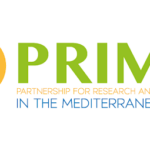This project to model the composition of bio-based residual streams and its evolution to optimise its management and processing is part of the Bio-based Industries Research and Innovation sub-programme (BBI-2019-SO2-R7) of the Horizon 2020 Programme.
Variations in composition of bio-based residual streams are a major drawback for their effective management and processing. Better insight into their nature, composition and transformation reactions affecting their composition and energetic content is crucial for putting the right valorisation steps in place. Modelling systems to track and chart impacts of relevant variables in managing and processing organic residual streams can provide the desired insight and help simulate value chains for valorisation.
The specific challenge is to increase insight into the changing quality of bulk organic residues with the aid of modelling systems.
Scope
The proposals should develop and test adequate analytical tools and innovative algorithms to model the composition of different organic residual streams.
- Proposals should deliver adequate tools to monitor and analyse the evolving composition of organic residual streams.
- Proposals should enable and facilitate the testing of parameters such as availability, seasonality, territorial features and the origin of the targeted residual streams.
- The developed models should focus on the physico-chemical characteristics of the different residual streams, paving the way to a better valorisation of such feedstock into a wide range of products.
- Proposals should address all requirements for RIA as shown in Table 3 of the Annual Work Plan 2019.
The technology readiness level (TRL) at the end of the project should be 4-5 for the bio-based value chain in question. Proposals should clearly state the starting and end TRLs of the key technology or technologies targeted in the project.
Participation of industry and territorial waste managing authorities in the project would be considered as an added value because they can play a supportive role to demonstrate the potential for integrating the developed concepts into current waste management schemes, industrial landscapes or existing plants so that they can be deployed more quickly and scaled up.
Deadline
04th of September, 2019







Leave a Reply